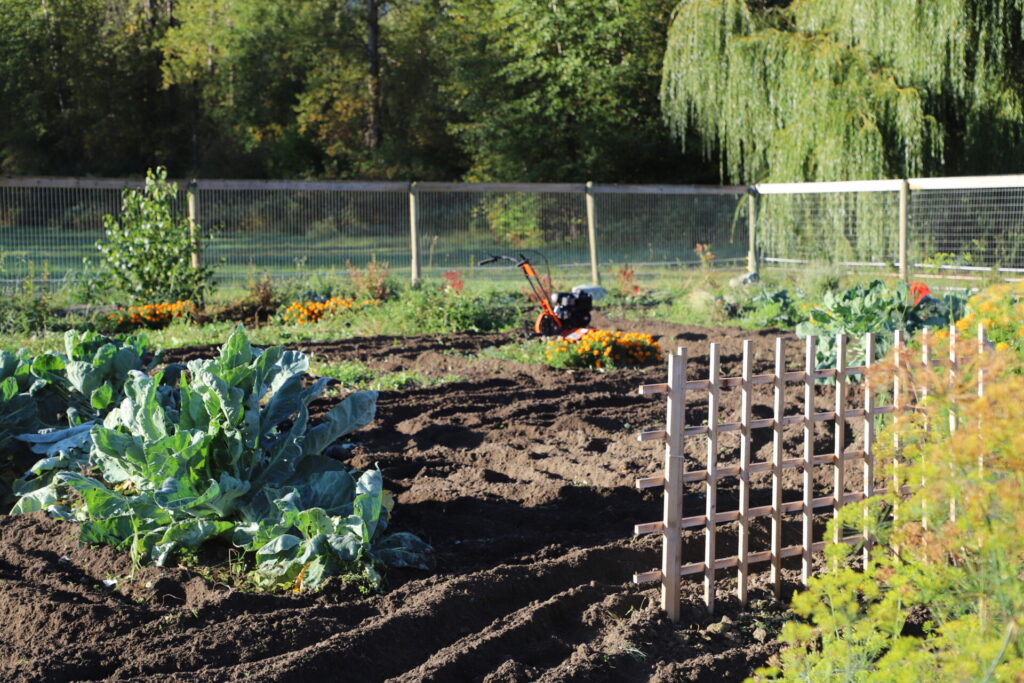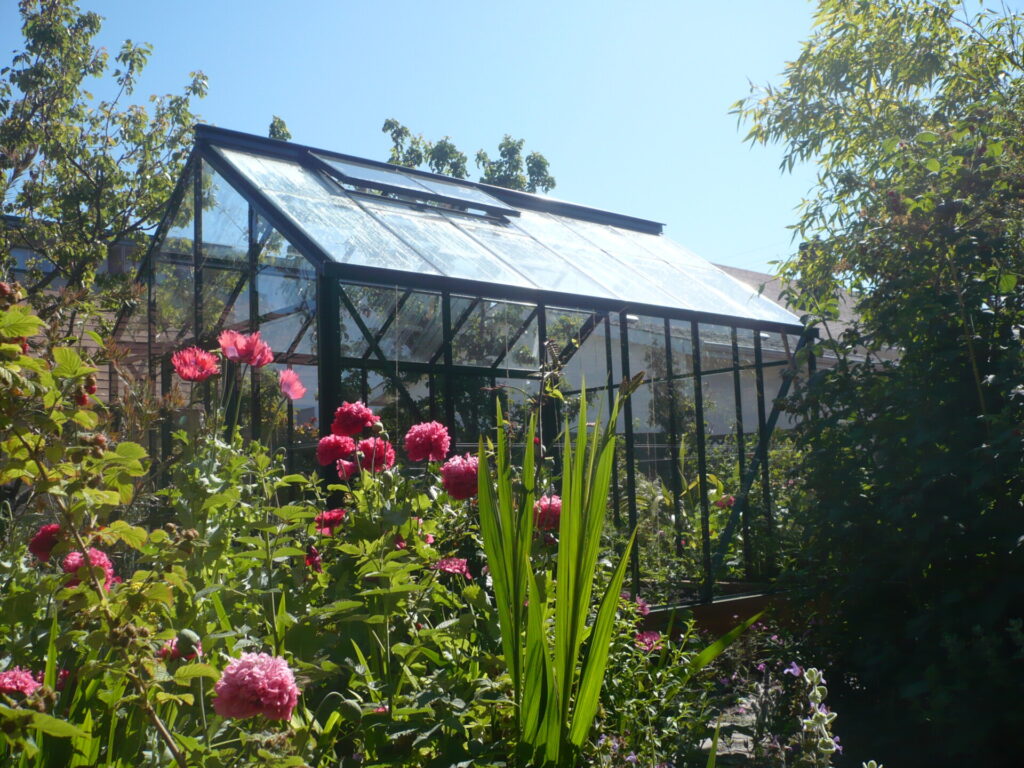Greenhouse-Specific Eco Upgrades
Sustainable greenhouse practices. Your greenhouse is already a sustainable step—extending your growing season, protecting crops, and improving yields. But with a few smart upgrades, it can become even more eco-friendly:
Rainwater Harvesting with Greenhouse Gutters
If your greenhouse has gutters, you’ve got the perfect setup to collect rainwater. Add a rain barrel to capture runoff from your roof and use it for watering plants. It’s a simple, low-cost system that conserves water and reduces your utility bills.
Choose High R-Value Glazing
If you’re purchasing a greenhouse or considering a glazing upgrade, opt for materials with a higher R-value (like multiwall polycarbonate). Better insulation means better heat retention, which helps reduce your need for supplemental heating—saving energy and money long-term.
Passive Solar Efficiency
Make the most of natural light by keeping your glazing clean and free of algae or residue. Inside your greenhouse, consider adding thermal mass—such as water barrels or pavers—to help regulate temperature. These materials absorb heat during the day and slowly release it at night, reducing temperature fluctuations that can stress plants.
Water barrels are a great way to create this thermal mass. For even better results, place black-painted barrels along the north wall of your greenhouse. The black color helps them absorb and retain heat more effectively, making them a natural heat sync. During the day, the barrels soak up heat from the sun and then gradually release it when temperatures drop, keeping your greenhouse warmer at night without relying on electricity. This is a fantastic way to reduce your reliance on supplemental heating and save energy—and money—throughout the year.
Natural Ventilation & Shade
Reduce the need for electric cooling by using automatic vent openers and shade cloth. These passive tools help you maintain ideal temps without relying too much on powered fans.
Reuse & Repurpose Inside the Greenhouse
From reusing pots and trays to repurposing old furniture or crating wood as shelves or workbenches, your greenhouse can be a hub for low-waste growing. Keep a bin inside for compostable scraps or create a mini worm bin under a bench!

Easy Eco Gardening Swaps
Going green doesn’t mean tossing everything you own. It’s about making better choices when it’s time to restock. Here are some simple swaps to consider:
| Instead of… | Try this eco-friendly swap |
| Disposable plastic seed starting pots and trays | CowPots, soil blocks, and sturdy reusable propagation trays |
| Synthetic fertilizer | Organic compost or worm castings |
| Peat moss | Coconut coir (renewable + sustainable) |
| Disposable plant tags | Bamboo or Wood markers |
| Chemical pesticides | Neem oil, beneficial insects, or companion planting |
Bonus: Most of these alternatives support soil health and biodiversity, too!
Waste Less: Tips for a Low-Waste Garden
Even a thriving greenhouse can generate a lot of waste if you’re not careful. Here are a few tips to help you cut back:
Reuse What You Can
- Save plastic nursery pots and reuse them next season.
- Wash and reuse labels, tags, and trays.
- Repurpose containers—mason jars, yogurt tubs, even wine boxes make great planters.
Start Composting
Whether it’s a backyard pile, a worm bin in your greenhouse, or tumbler, composting is the single best way to turn kitchen and garden scraps into nutrient-rich soil food.
Skip the Harsh Cleaners
Use vinegar or mild soap to clean greenhouse tools and surfaces—no need for bleach or ammonia-based cleaners that harm soil microbes.
🌍 Earth Day, Every Day
Your greenhouse already makes a big difference—but with a few upgrades, it can be an even stronger ally for the planet.
Gardening gives us a front-row seat to the rhythms of the natural world. With just a few tweaks to how we grow, we can give back to the planet that gives us so much. Whether you’re capturing rainwater, using thermal mass, or just reusing your trays season after season, it all adds up.
At Charley’s, we’re committed to helping you grow greener—this Earth Day and every day.
Want to Dig Deeper?
Check out these sustainable gardening favorites in our shop:






